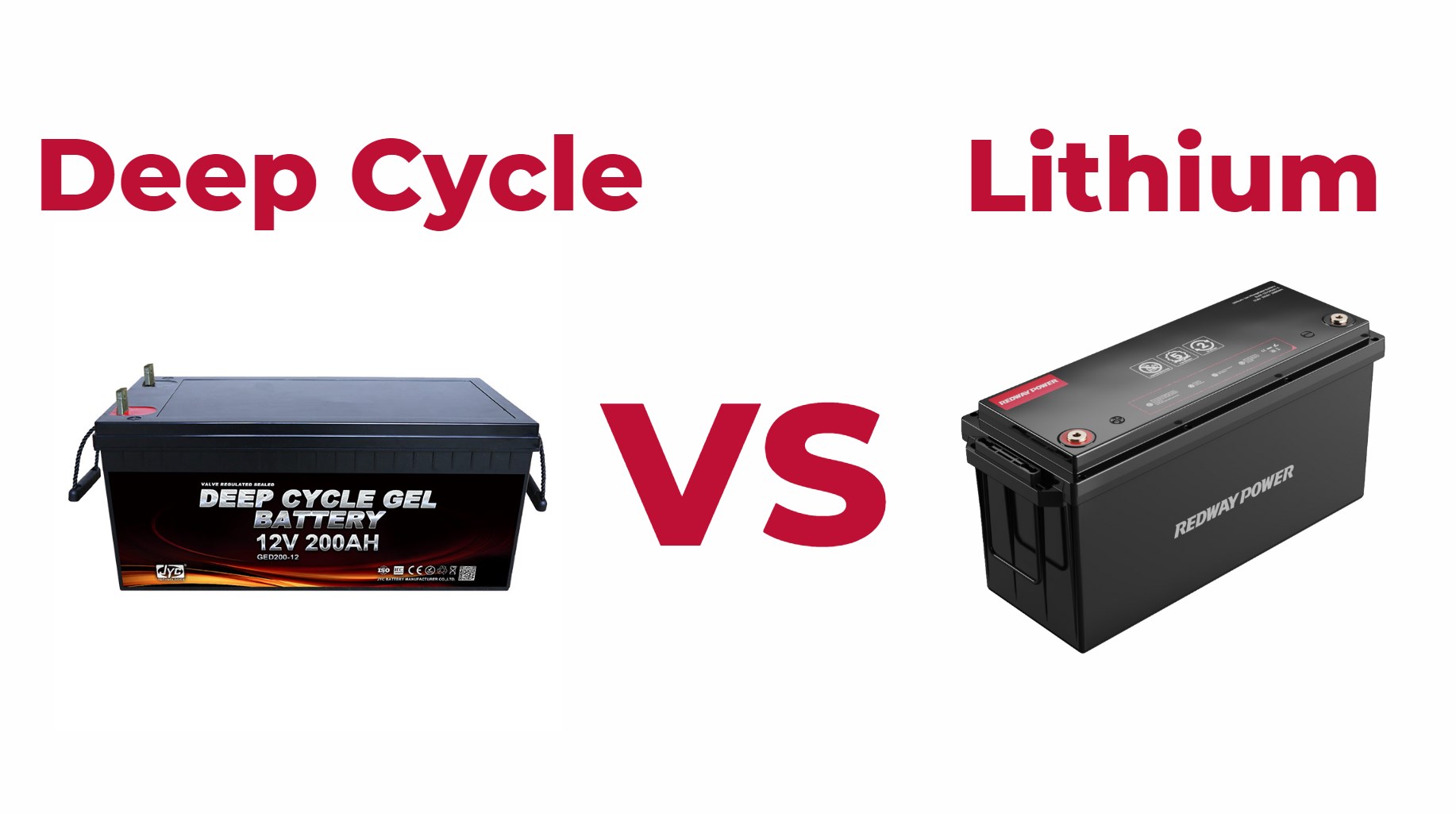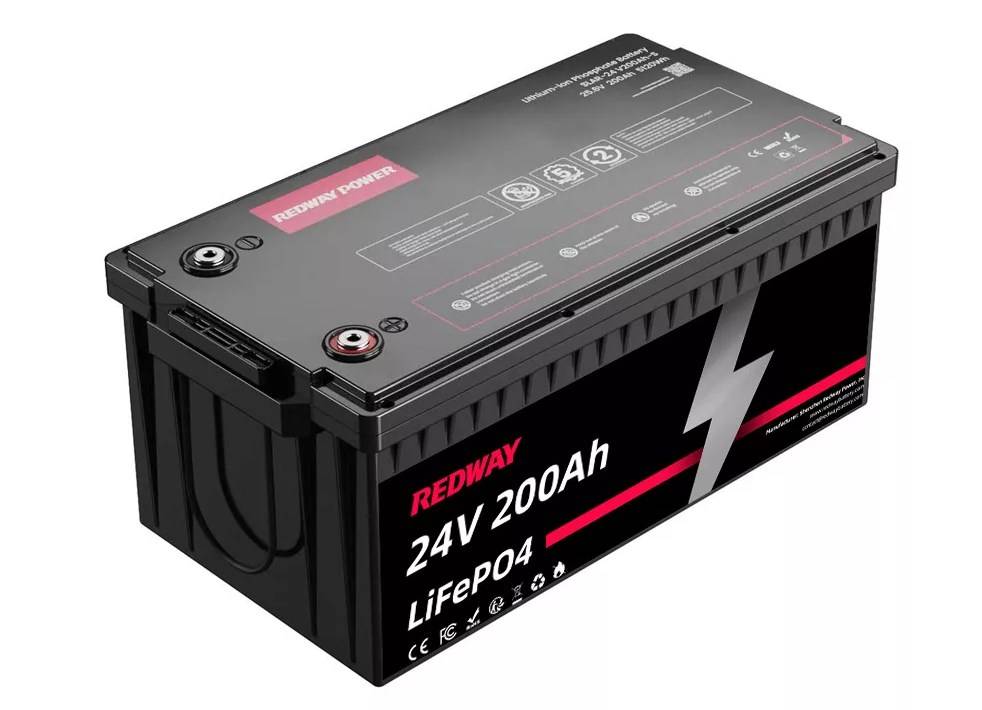The energy landscape is evolving, and the debate over whether a lithium battery can replace a deep cycle battery is at the forefront of this transformation. In this comprehensive exploration, we will compare these two powerful energy solutions, delving into their advantages, disadvantages, popular applications, and cost considerations. By the end, you will have a clearer understanding of which option best suits your needs.
Yes, a lithium battery can replace a deep cycle battery in certain applications. Lithium batteries offer higher energy density, longer lifespan, faster charging times, and lighter weight compared to traditional deep cycle batteries. They are suitable for electric vehicles, boats, RVs, solar power systems, and portable electronics. Factors to consider include initial cost, compatibility, and temperature sensitivity. Switching to a lithium battery can provide more efficient and reliable power storage.
Understanding the Differences Between Lithium Batteries and Deep Cycle Batteries
Lithium batteries and deep cycle batteries serve distinct purposes in the realm of energy storage. Lithium batteries, utilizing lithium ions for energy storage, are renowned for their high energy density and lightweight design. This allows them to store significant amounts of energy in a compact space. Conversely, deep cycle batteries, often lead-acid based, are engineered to provide sustained power over longer periods, making them a reliable choice for certain applications.
One notable difference is in their discharge capabilities. Lithium batteries maintain a consistent voltage throughout their discharge cycle, delivering stable power until they are nearly depleted. Deep cycle batteries, however, exhibit a gradual voltage decline as they discharge, which can impact performance in critical situations.
Charging efficiency is another area where lithium batteries excel. They are capable of retaining charge more effectively and feature quicker recharge times compared to their deep cycle counterparts. This efficiency translates to less downtime waiting for batteries to recharge, allowing users to maximize their productivity.
When it comes to lifespan, lithium batteries generally outlast deep cycle batteries, providing up to ten years or more with proper maintenance, while deep cycle batteries typically require replacement every 3-5 years. Understanding these differences can guide consumers in choosing the right battery for their specific applications.
Advantages of Lithium Batteries Over Deep Cycle Batteries
Lithium batteries offer numerous benefits that make them an attractive choice for various applications:
- Lightweight and Compact Design: Lithium batteries are significantly lighter than deep cycle batteries, making them ideal for applications with limited space and weight constraints, such as in RVs or boats.
- Longer Lifespan: With proper maintenance, lithium batteries can last up to ten times longer than traditional deep cycle batteries, resulting in fewer replacements and reduced long-term costs.
- Faster Charging Capabilities: Lithium batteries can handle higher charge rates without compromising their lifespan or performance, minimizing downtime and enhancing user experience.
- Higher Energy Density: The compact size of lithium batteries does not compromise their energy storage capacity, enabling users to achieve more with less space.
- Consistent Power Output: Lithium batteries provide stable voltage levels throughout their discharge cycle, ensuring reliability in power-hungry applications.
These advantages position lithium batteries as a compelling option for those seeking efficiency, longevity, and enhanced performance.
Disadvantages of Lithium Batteries Compared to Deep Cycle Batteries
While lithium batteries have many benefits, it’s important to also consider their drawbacks:
- Higher Initial Cost: The upfront investment for lithium batteries is generally higher than that of deep cycle batteries. However, this can be offset by their longer lifespan and lower maintenance costs over time.
- Sensitivity to Temperature Extremes: Lithium batteries can be adversely affected by extreme temperatures, which may limit their applicability in harsh environments. Deep cycle batteries tend to perform better under varied temperature conditions.
- Newer Technology: Lithium battery technology is still relatively recent compared to deep cycle batteries. This may introduce uncertainties regarding long-term reliability and performance.
- Recycling and Disposal Concerns: Both battery types require careful disposal due to environmental considerations, but lithium batteries may present additional challenges in recycling processes.
Despite these disadvantages, the overall benefits of lithium batteries often outweigh the drawbacks, especially for users prioritizing efficiency and performance.
Popular Uses for Lithium Batteries and Deep Cycle Batteries
Understanding the applications of each battery type is essential for making an informed choice:
- Lithium Batteries: These batteries are commonly found in portable electronics like smartphones, laptops, and cameras, where their lightweight and high energy density offer significant advantages. They are also gaining traction in electric vehicles and renewable energy systems, such as solar power setups.
- Deep Cycle Batteries: Typically employed in off-grid energy systems, RVs, boats, and backup power solutions, deep cycle batteries are valued for their ability to deliver consistent power over extended durations. Their robustness makes them suitable for applications that require reliable energy storage.
Case Studies: Success Stories of Switching from Deep Cycle to Lithium Batteries
Real-world examples illustrate the transformative impact of transitioning to lithium batteries. Take the story of Tom, an avid camper. Frustrated with the maintenance and weight of his deep cycle battery, he decided to upgrade to a lithium battery. The results were remarkable: longer-lasting power, reduced weight, and increased space in his RV for other essential gear.
Similarly, Sarah, a boat owner, experienced a significant improvement in her boating adventures after switching to lithium. With faster recharging capabilities and reliable power throughout her trips, she no longer faced anxiety over running out of energy on the water.
These success stories underscore the potential benefits of lithium technology across various applications, highlighting increased efficiency and reduced maintenance.
Cost Comparison: Is It Worth Investing in a Lithium Battery?
Evaluating the cost-effectiveness of lithium batteries versus deep cycle batteries requires a comprehensive analysis. While lithium batteries generally have a higher initial price, their longevity and efficiency can lead to substantial savings over time.
Consider this: a lithium battery can last up to ten years, while deep cycle batteries often need replacement every few years. This means fewer replacements and lower cumulative costs in the long run. Additionally, lithium batteries’ rapid charging capabilities enable users to maximize their time and productivity, further justifying the investment.
When evaluating your specific energy needs, consider whether you prioritize lightweight design, long-lasting performance, and faster recharge times. If these factors are crucial to your application, investing in a lithium battery may ultimately be the most cost-effective choice.
Conclusion
Choosing between a lithium battery and a deep cycle battery hinges on your individual requirements. Lithium batteries provide numerous advantages, including longer lifespans, faster charging, and lightweight designs, making them suitable for applications where efficiency and portability are essential. Conversely, deep cycle batteries remain a reliable option for sustained power in applications that prioritize affordability and proven technology.
By thoroughly assessing your needs and weighing the pros and cons of each battery type, you can make an informed decision. As advancements in lithium battery technology continue to evolve, more users are transitioning to these innovative power solutions, benefiting from enhanced performance and reduced maintenance.
Ultimately, whether you opt for a lithium battery or a deep cycle battery, understanding the unique characteristics of each will empower you to find the best energy solution for your specific application.




